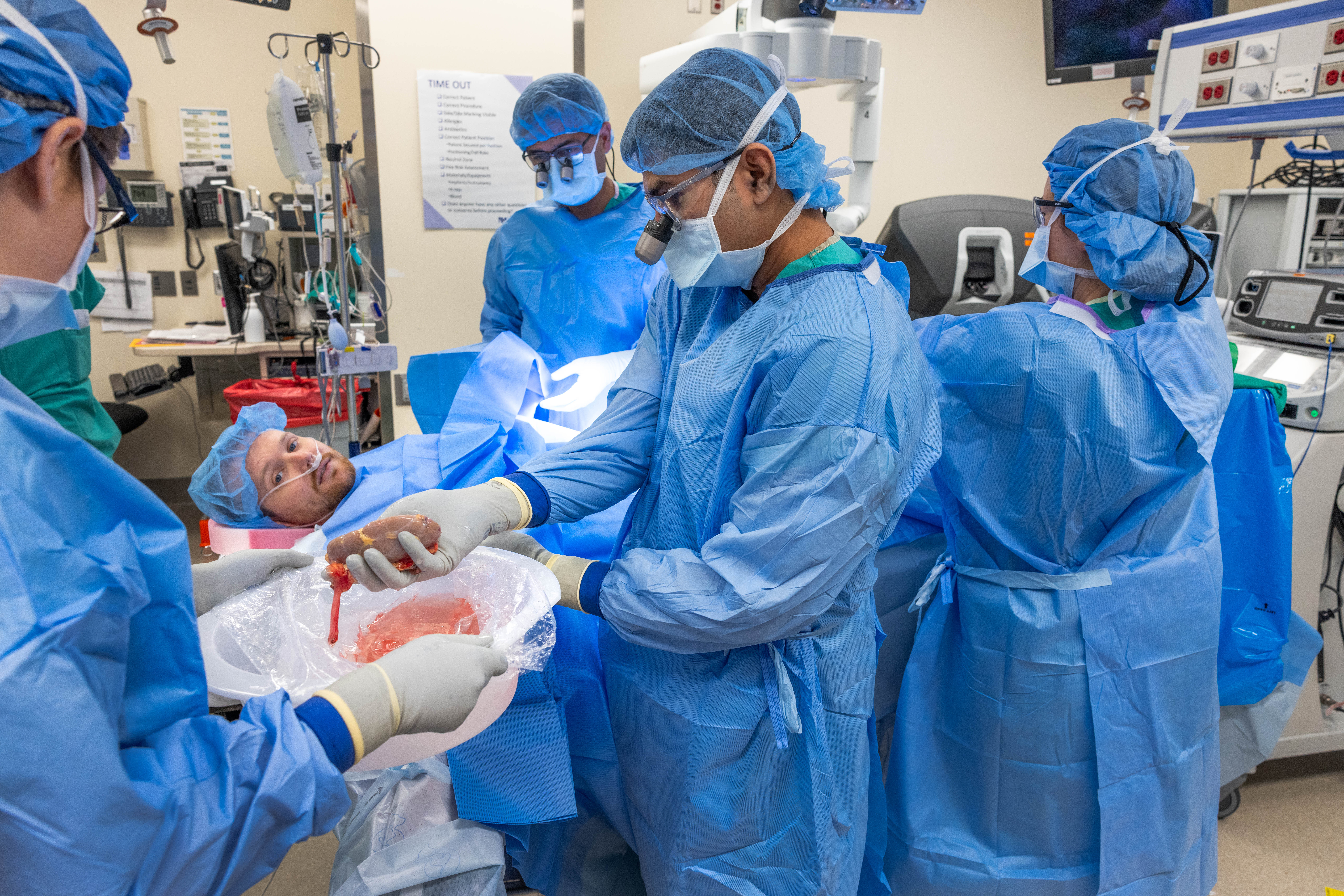
Anesthesiology and Pain Management
Complaints after anesthesia: it can happen. Sometimes these are indeed the result of the anesthesia itself, sometimes they are also complaints related to the operation.
With a general anesthetic or anaesthesia, you will be given a sedative, a pain reliever and a muscle relaxant through an IV. You will be unconscious during the operation. In addition, there are regional anesthesia (such as the epidural) and local anesthesia (for minor procedures). With regional and local anesthesia you will remain conscious, but you will not feel any pain.
Possible complications with anesthesia
Although anesthesia is very safe these days, complications can never be ruled out. These are not always a direct result of the anesthesia.
- If you are already under anesthesia, the anesthesiologist will usually place a breathing tube. This is done as a precaution: during any operation, unforeseen circumstances can arise that require you to use a ventilator. In a few cases, the breathing tube can cause damage to the teeth. This is especially true if you have fragile teeth.
- The breathing tube can also cause sore throat or hoarseness. This normally goes away quickly.
- During the operation, you will be given medication through the IV. If it turns out that you react hypersensitively to (one of) those medicines, that can also cause side effects.
- Only very rarely does a patient remember sounds or other sensations of the operation after the operation. You can dream during the anesthesia; sometimes this is confused with a form of remembering.
- Nausea after surgery is common. If necessary, the anesthetist can give you medication for this. If you quickly become nauseous, indicate this during the preliminary meeting with the anesthetist.
- Very rarely, after a general anaesthetic, a patient suffers from loss of sensation and/or strength (muscle weakness) in an arm or leg. These types of complaints generally disappear quickly.
- You have been operated on during a general anesthetic and your body will react to that procedure in any case. The body pulls out all the stops to initiate the healing process. This of course has an effect on your overall well-being. Normally, such complaints disappear fairly quickly.
- Elderly patients can sometimes be a bit confused when they just recover from the anesthesia. This is called a delirium. The anesthetist can prevent such delirium and – if it does occur – treat it. Side effects such as long-term and irreversible memory problems do not occur after anesthesia these days.
Conversation with the anesthesiologist
If you have to undergo anesthesia because of an operation, there is always a preliminary meeting with the anesthetist: the preoperative meeting. This is an important conversation, because the anesthesiologist can assess possible risks on the basis of this. He can also give you personal tips to prepare you well for the operation.
Narcosis: also good to know
- During the procedure, the anesthesiologist monitors the depth of your anesthesia and adjusts if necessary. The chance that you will regain consciousness during the operation is therefore virtually nil.
- Anesthetics are normally gone from your body within a few hours.
- Your physical condition influences the extent to which you are bothered by the procedure and the anesthesia.
- The longer a procedure takes, the more time it will take to recover.
Sources):















